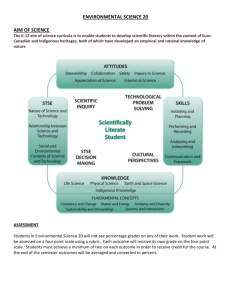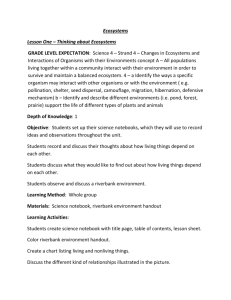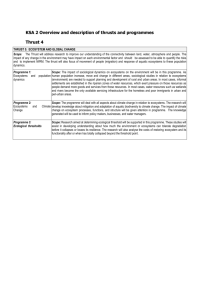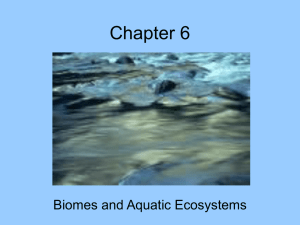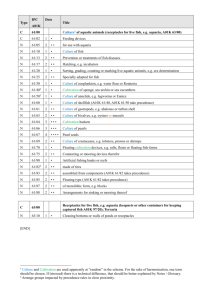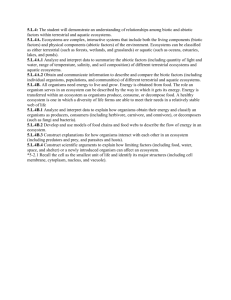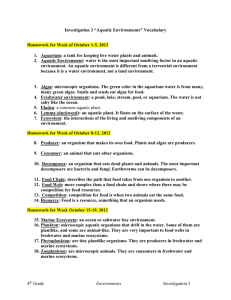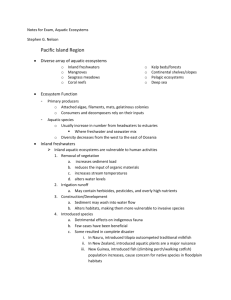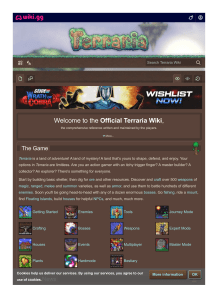Ecosystems Objectives
advertisement
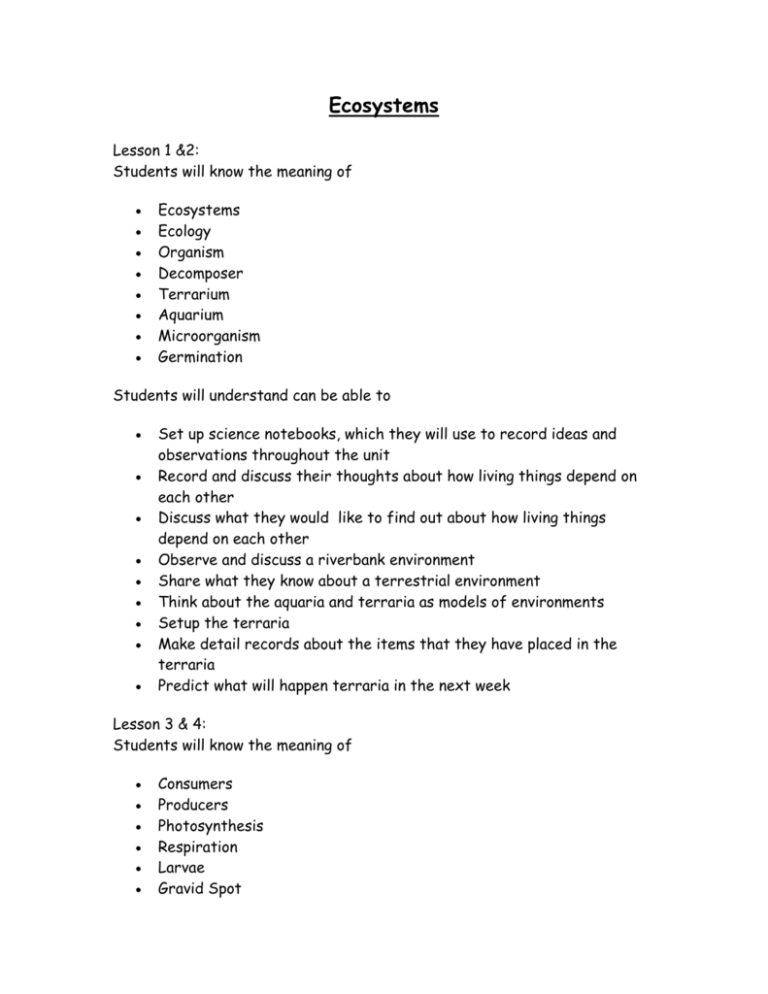
Ecosystems Lesson 1 &2: Students will know the meaning of Ecosystems Ecology Organism Decomposer Terrarium Aquarium Microorganism Germination Students will understand can be able to Set up science notebooks, which they will use to record ideas and observations throughout the unit Record and discuss their thoughts about how living things depend on each other Discuss what they would like to find out about how living things depend on each other Observe and discuss a riverbank environment Share what they know about a terrestrial environment Think about the aquaria and terraria as models of environments Setup the terraria Make detail records about the items that they have placed in the terraria Predict what will happen terraria in the next week Lesson 3 & 4: Students will know the meaning of Consumers Producers Photosynthesis Respiration Larvae Gravid Spot Lateral Line Radula Mantle Scavenger Gastropod Students will understand and be able to Discuss the needs of organisms in an aquatic environment Setup their aquaria by adding gravel, elodea, duckweed, algae Observe, quantify, and record information about the organisms they placed in their aquaria Read about the role of plants and algae in a pond Discuss information on aquatic plants and algae through observing and reading Complete their aquaria by adding mosquito fish and snails Continue to record their observations of the plants, algae, and animals in the aquaria and the plants in terraria Read to learn more about the animals in their aquaria Lesson 5 & 6: Students will know the meaning of Embryo Interdependent relationship Aquatic Isopod Exoskeleton Entomologist Molt Thorax Students will understand and be able to Discuss what they have read and observe about the animals in their aquaria Offer evidences of the dependent and independent relationship they have observed in their own ecosystems Predict the changes might occur in both their own aquaria and terraria and in the class one Read about germination, which they have been observing over the past week or so Continue to observe and record plant growth in the terraria Make observations and record descriptions of animals they added in their terraria Identify and record similarities and differences between crickets and isopods Continue to discuss their concepts of the word “ecosystems” Through reading selections, students learn more about crickets and isopods Lesson 7: Students will understand and be able to Using information from direct observations and reading, students discuss their terrestrial and aquatic ecosystems Explore food change and consider the impact organisms have on one another Create a class web of their terrestrial ecosystems and compare it with lesson five’s aquatic web Discuss the webs of both systems and compare them with the world’s ecosystems Predict how one ecosystem might influence the other Lesson 8: Students will know the meaning of Alkalinity Acidic solution Acid rain Algae bloom Basic solution Fossil fuel Fertilizers Pollutant Neutral solution pH Scale Students will understand and be able to Observe, describe, and compare stable and disruptive ecocolumns Become familiar pH paper Identify and discuss some natural causes that can disrupt an ecosystem Read and write about human-made disrupting forces, or pollutants Reflect on your own learning through self-assessment Lesson 9: Students will understand and be able to Make presentations about the three pollutions Discuss the trade-offs involved when humans release pollutants into the environment Record in their science notebooks important points and questions regarding each presentation Read about three pollutants Observe their ecosystems and record observations Lesson 9: Students will know the meaning of Experimental variable Controlled experiment Scientific experiment Control Students will understand and be able to Discuss and analyze the causes and effects of three types of pollution Explain experiments to study the effects of pollution Determine variables and controls and prepare to use simulation in a scientific investigation Predict the possible effects of pollutants on their model ecosystems Establish a record keeping system for their experiments
